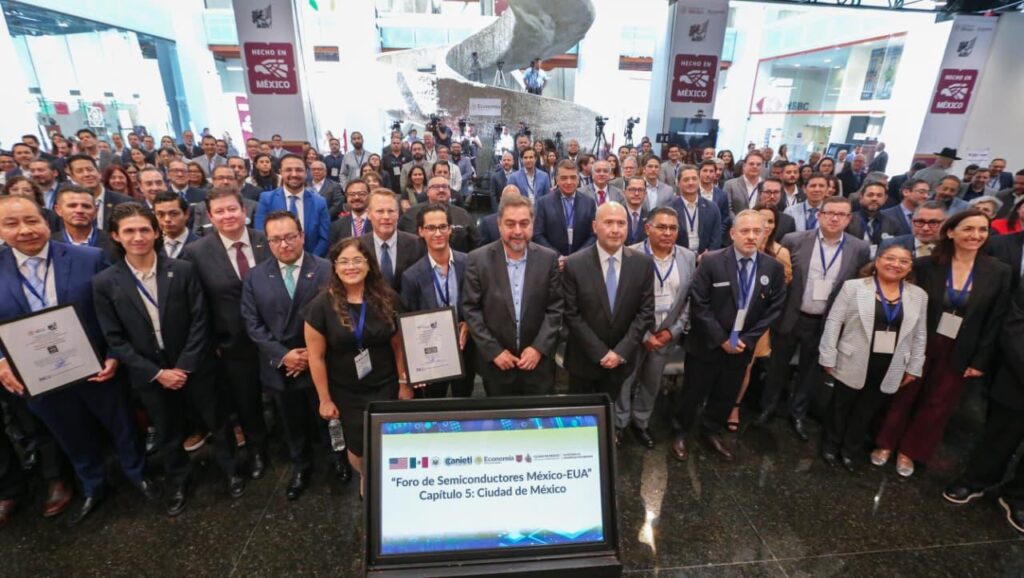A senior official in President Claudia Sheinbaum’s administration highlighted Mexico‘s loyalty in industrial integration with the United States.
To give an idea: the industrial complementarity between Mexico and the United States is evident in automobile manufacturing. Mexico produces auto parts and assembles vehicles, while the United States contributes design and technology. Thus, both generate high regional value in the auto trade.
Industrial integration with the United States
Mexico and the United States are strengthening their cooperation in semiconductors. They seek to consolidate strategic supply chains. Meanwhile, China persists in its leadership with financing and industrial policies. In 2024, Hong Kong and Taiwan led exports of these products.
«We have uncertainties, we have problems, but we also have the possibility of a future that lies in what we have built and in being part of the North American Free Trade Agreement and in this country’s commitment, in the success of this trade integration and in how loyal Mexico has been as a commercial and industrial ally of the United States,» said Vidal Llerenas, Undersecretary of Industry and Trade at the Ministry of Economy.
In the United States, subsidies for investments in semiconductor manufacturing come from the CHIPS Act. For example: Intel with $8.5 billion, TSMC with $6.6 billion in Arizona, and Micron with $6.14 billion in New York and Idaho. These new projects consolidate strategic technological capacity and industrial leadership.
Productive synergies
The United States-Mexico-Canada Agreement (USMCA), in force from 2020 to 2036, is reviewed every six years. Without consensus, it remains active but expires in 2036. If all parties agree, it is renewed for 16 years; otherwise, there will be joint annual reviews.
Llerenas concluded his remarks by saying, “Our commitment is to continue working to create a better semiconductor chain in Mexico. Of course, this will be part of the overall review of the USMCA, but it also involves doing our work internally.”
Llerenas pointed out that Mexico must strengthen dual education and micro-credentials. This approach seeks to leverage the country’s comparative advantage: a cost-competitive workforce with high technical and engineering skills, which is key to the industry.
He participated this Wednesday in the inauguration of the Mexico-United States Semiconductor Forum in Mexico City.

